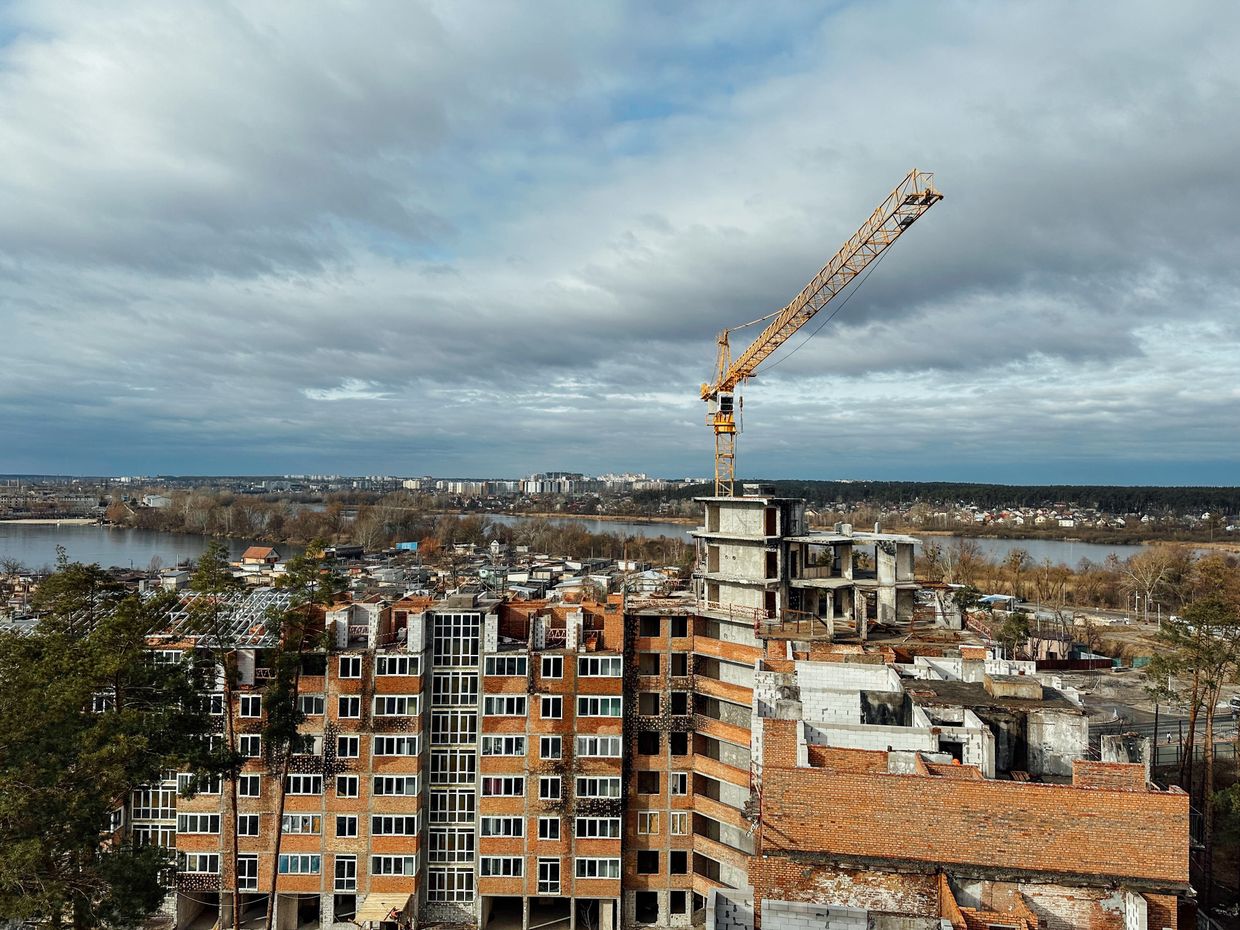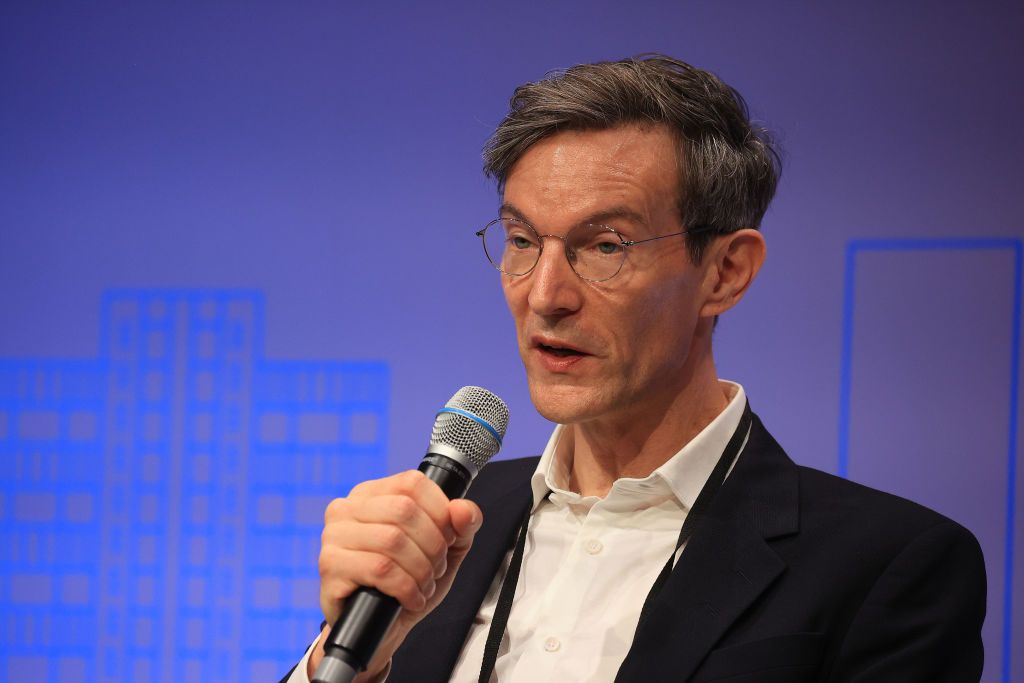Arvid Tuerkner’s first winter in charge of the European Bank for Reconstruction and Development in Ukraine comes with a daunting task: swiftly mobilize investment into energy companies crippled by two years of Russian attacks.
Russia began targeting Ukraine’s energy infrastructure in late 2022 and has since then pounded the energy system with drones and missiles, knocking out half of the country’s power generation capacity by late 2024.
Officials have warned this winter could be the worst yet since Russia began its campaign against the energy system.
The EBRD has plowed nearly a quarter of its 5 billion euros ($5.3 billion) in investments into the country’s state-owned energy companies since late 2022. Back then, the London-based lender focused on financing repairs and defensive structures. It’s now supporting electricity generation after attacks earlier this year decimated Ukraine’s thermal and hydroelectric plants.
“We need to be very fast and focused to make sure (energy generation) is online as soon as possible,” Tuerkner, who also heads the bank's efforts in Moldova, told the Kyiv Independent at the end of a two-week visit to Ukraine on Oct. 31.
The bank — Kyiv’s largest institutional lender — has been a lifeline for Ukrainian private and state companies, agreeing to a 4-billion-euro capital increase in December 2023 to allow it to double its lending to the war-torn nation.
So far this year, it has injected more than 1.3 billion euros across 46 projects, backing schemes in energy and food security, trade, and vital infrastructure, with a focus on private sector resilience.
Tuerkner says that given the current situation, however, energy has been the priority since his appointment five months ago.
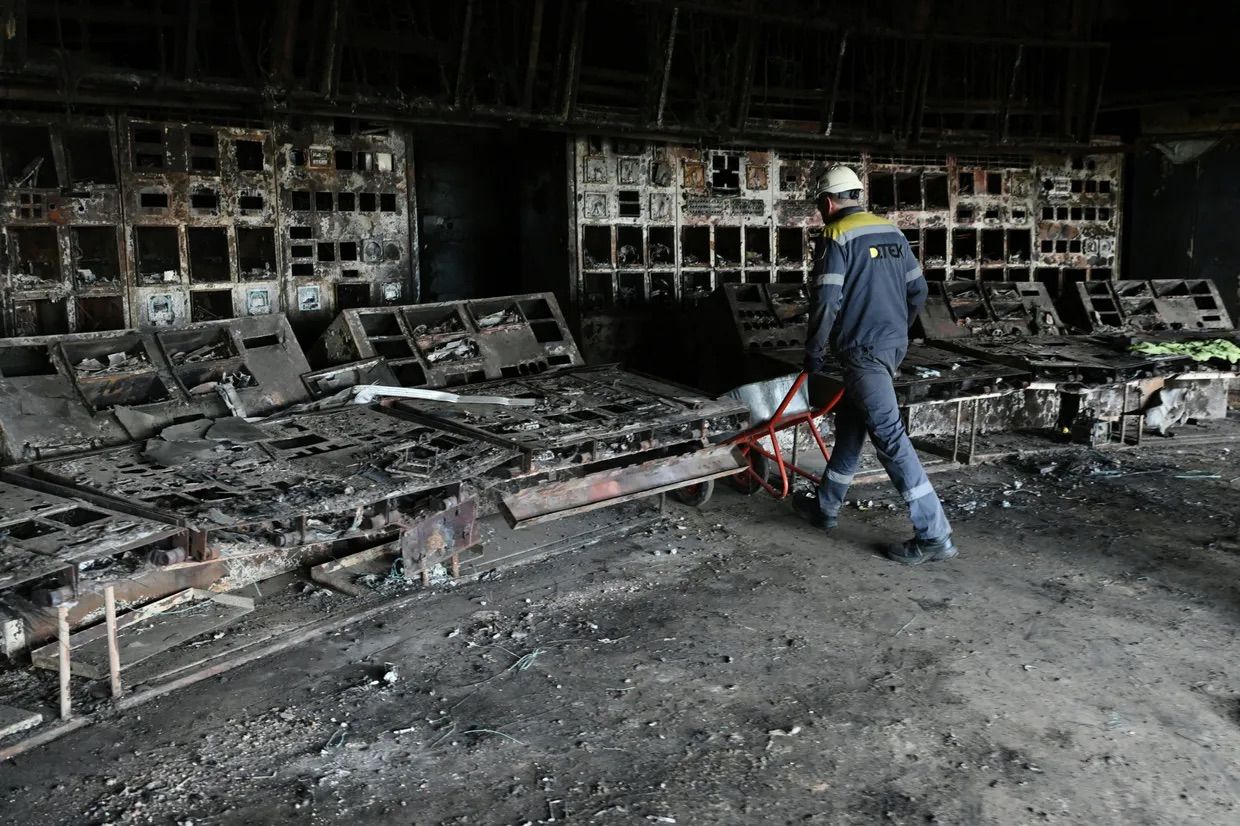
Electricity transmission system operator Ukrenergo, oil and gas giant Naftogaz, and hydropower company Hyrdoenergo have received the lion’s share of the bank's investments, receiving at least 1 billion euros ($1.053 billion) since 2022.
Naftogaz told the Kyiv Independent the bank is a “steadfast and invaluable partner” that is “instrumental” in Ukraine’s energy security. The state-owned company has received EBRD loans totaling 500 million euros ($527 million) since the start of the full-scale invasion.
Energy rationing necessary to mitigate the impact of Russian attacks is expected to leave Ukrainians without power for large parts of the day. Executive Director of DTEK — Ukraine’s largest private energy company that the EBRD has so far stayed away from due to its ownership by Ukrainian billionaire Rinat Akhmetov — told the Kyiv Independent in June that in a worst-case scenario, Ukrainians could face up to 20 hours of blackouts a day.
The country has moved to decentralize its energy system as quickly as possible by replacing some of the power generated by coal-powered thermal plants destroyed or heavily damaged by Russia with gas-powered turbines, solar panels, and “mini thermal plants,” among other quick solutions.
To bolster government efforts, the bank has extended loans for equipment like generators through a 700-million-euro shared risk program.
While the EBRD is working with Europe’s green energy transition to move away from fossil fuels, Ukraine’s urgent energy needs take priority, Tuerkner said. The bank asked shareholders for an exemption for Ukraine’s gas generation construction.
Tuerkner believes short-term solutions, like gas engines, will help balance power for intermittent renewables in the long run. The EBRD is continuing to invest in Ukraine’s clean energy sector this year to support the transition, including a 62-million-euro loan to the fuel-retail company Galnaftogaz for a 147-megawatt (MW) wind farm.
The bank is additionally financing new players entering the energy generation market, such as state railway operator Ukrzaliznytsia, which announced plans in June to build dozens of gas-generating plants with a total capacity of up to 250 MW across the country.
Ukrnafta, a state-owned oil and gas extraction company that is a subsidiary of Naftogaz, is also constructing gas-burning electricity and heat generation facilities covering 70 MW with support from the EBRD. The Ukrnafta and Ukrzaliznytsia projects won’t be up and running until 2025, Tuerkner said.
“The (energy) situation will not be so different in six months' time. It's still very much needed because there is a gap in generation,” he said.
In addition to a ticking clock as winter settles in, the largest wartime government reshuffle in September has disrupted EBRD projects with the public sector, according to Tuerkner.
With ministers being fired and hired, including the sacking of Ukrenergo CEO Volodymyr Kudrytskyi, decision-making has been slow but is still on a “good track,” he said.
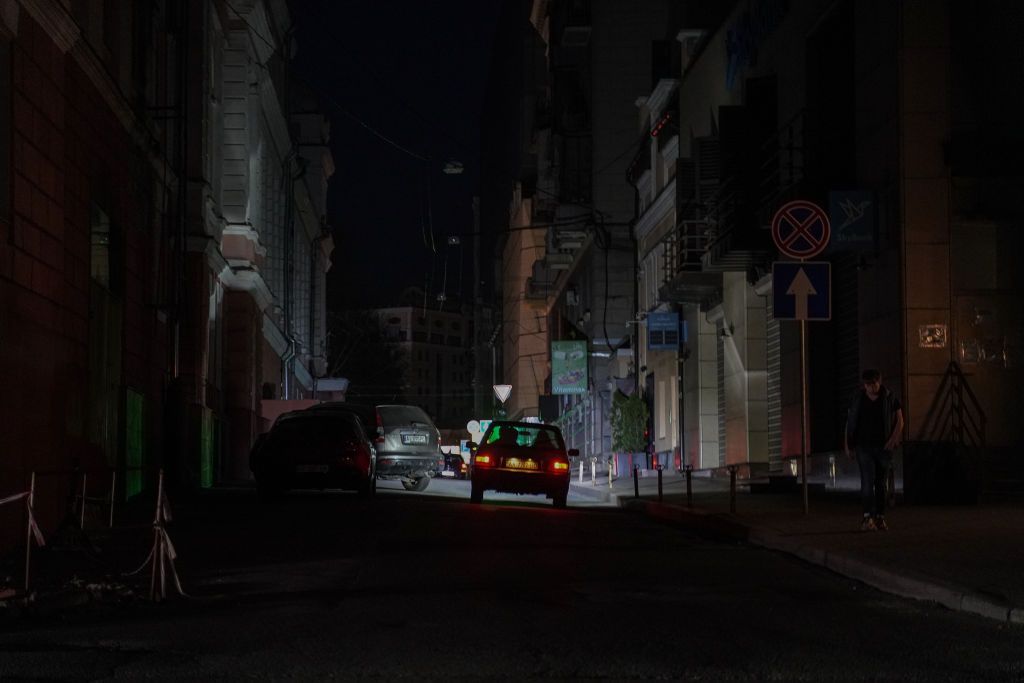
Private-sector support
Despite breaking with the EBRD’s long-standing mandating of focusing primarily on the private sector by investing in Ukraine’s state-owned companies, the bank has also been one of the few investors to continue backing big-ticket investments.
In the largest foreign direct investment since the start of the full-scale invasion, the EBRD provided a $435 million loan alongside the International Finance Corporation for a $600 million merger.
French billionaire Xavier Niel’s company NJJ Capital purchased Ukraine’s third-largest mobile operator Lifecell and service provider Datagroup-Volia earlier this year, merging the companies under a new entity, Lifecell-Datagroup-Volia.
“That (investment) shows everything is possible,” Tuerkner said.
Kyiv-based private equity firm Horizon Capital, an equity partner on the NJJ capital merger, told the Kyiv Independent that the EBRD “serves as a powerful anchor to private investors” as the bank looks to encourage more money into Ukraine.
Attracting investment has been lackluster as Russia’s war rages into its third year. Tuerkner doesn’t expect a lot of investment during the war — the uncertainty and hazards amid the invasion are too high and local banks have seen a plunge in lending, despite record-high profits.
“There's a war environment which makes it riskier to lend, so there's a certain hesitation,” Tuerkner said.
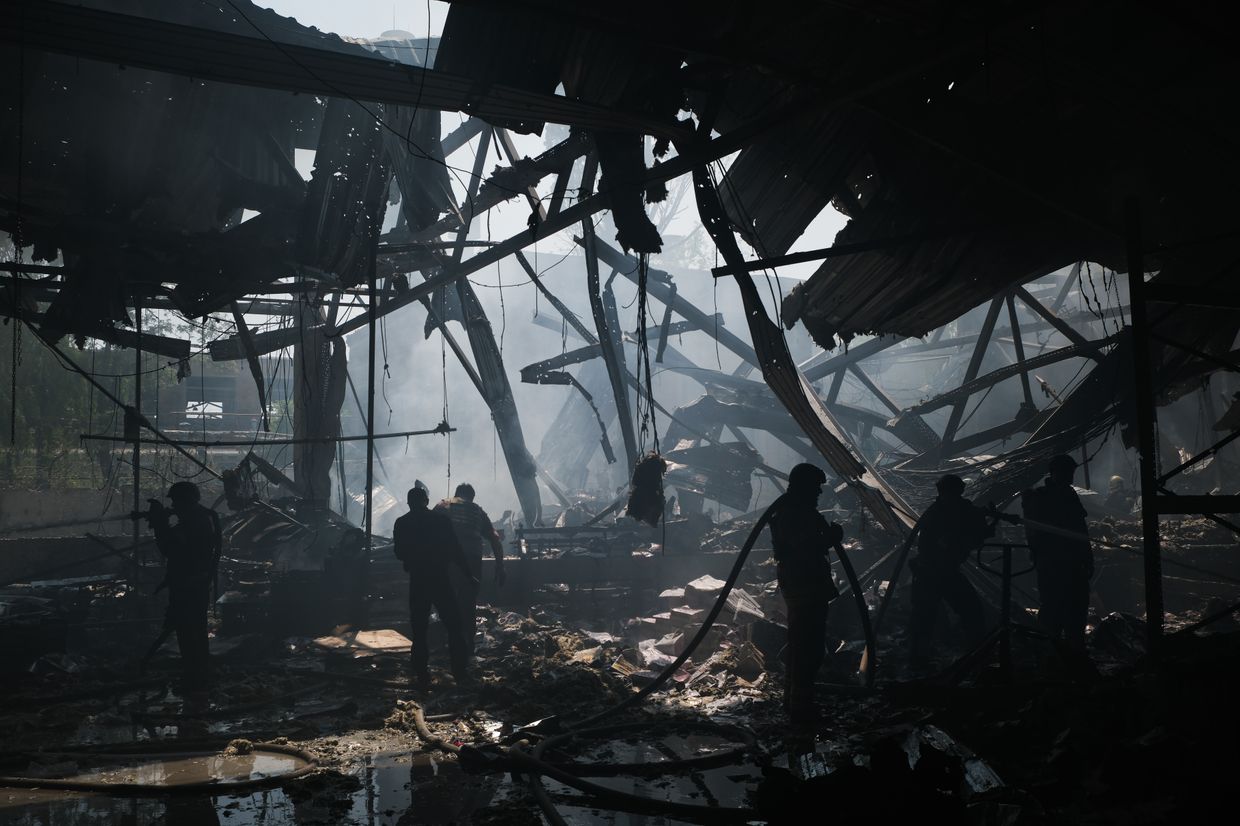
The EBRD is encouraging local banks to lend through portfolio risk-sharing programs focusing on energy needs, veteran-run businesses, and small and medium-sized businesses impacted by the war. By the year's end, the EBRD will have facilitated lending in the banking market of 1.1 billion euros.
To mold an attractive investment climate in the long run, Tuerkner said Ukraine must strengthen anti-corruption measures and combat the harassment of businesses by tax authorities.
Leaders in Ukraine’s business sector have raised the alarm over the past year over heavy-handed pressure and intimidation on businesses. The government earlier this year implemented a set of reforms of the Bureau of Economic Security, the agency widely seen as responsible for the pressure.
The bank also backs projects with a focus on anti-corruption trainings with institutions like the Restoration Agency, where Tuerkner said Ukraine is making steps in the right direction. The biggest driver for change is the EU integration process as well as conditions set by donors, he added.
“Businesses see the EU integration process and that might make investors change their minds,” he said.
